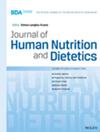Preparing Graduate Dietitians for Private Practice: Analysing Publicly Available Curriculum Information From Accredited Australian Dietetic Courses
Abstract
Background
The Australian private practice dietetics workforce has been rapidly expanding, partly due to structural changes in reimbursement policies and the increasing number of dietetics courses that have led to a growing influx of graduates into the private practice dietetics domain. However, graduates and experienced private practitioners have highlighted inadequate exposure to private practice during their training, citing a lack of business skills, minimal counselling skills and limited or no private practice placements. There appears to be a gap between employment realities for graduates and workforce preparation relevant to private practice dietetics. The aim of this study was to analyse the publicly available curriculum information related to private practice dietetics entrepreneurship preparation in accredited Australian dietetics courses.
Methods
Accredited dietetics course details were obtained from the Dietitians Australia website. Publicly available course information was assessed from university websites. A content analysis of curriculum relating to private practice entrepreneurship including programme and unit descriptions, course and unit learning outcomes, unit content, assessments and placements was completed against a predetermined framework developed from previously published literature.
Results
This study included all 22 accredited courses across 18 universities, comprising eight bachelor's degrees and 14 master's by coursework. Fifteen courses across 13 universities had units that included elements in the analytical framework. Business planning and development, as well as leadership, were the most commonly covered in the curricula; however, the depth of content was difficult to ascertain due to the limitations of university website content transparency. Private practice placements were included in seven courses; however, placements were often elective or of short duration. Other framework elements such as client retention strategies and legal and regulatory considerations had coverage across a limited number of courses across universities.
Conclusions
The findings of this content analysis suggest that curriculum pertaining to private practice entrepreneurship, although underdeveloped, is embedded in some accredited courses. Transparency of curriculum content within accredited dietetics courses in Australia varies, limiting prospective students' ability to ascertain what learning experiences they will be exposed to after enrolment. Further research is required to ascertain the curriculum necessary to support the preparation of student dietitians for private practice.

 求助内容:
求助内容: 应助结果提醒方式:
应助结果提醒方式:


